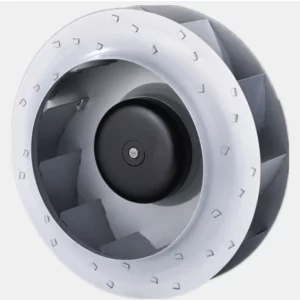Posts Tagged: ec centrifugal fan
Applications of EC Centrifugal Fans: Versatile Cooling Solutions for Various Industries
EC (Electronically Commutated) centrifugal fans have gained popularity as efficient and versatile cooling solutions across multiple industries. Their advanced motor technology and optimized airflow design make them suitable for a wide range of applications. In this article, we will explore the diverse industries and settings where EC centrifugal fans are commonly used, highlighting their benefits and contributions
I. Heating, Ventilation, and Air Conditioning (HVAC) Systems
- Commercial Buildings:
EC centrifugal fans are widely employed in HVAC systems for commercial buildings such as offices, shopping malls, hotels, and hospitals. They provide efficient air circulation, contributing to comfortable indoor environments while reducing energy consumption. - Residential Spaces:
In residential HVAC systems, EC centrifugal fans offer quiet operation and energy efficiency, enhancing air quality and comfort in homes. They are commonly found in air handling units, heat pumps, and ventilation systems.
II. Electronics Cooling
- Data Centers:
EC centrifugal fans play a vital role in cooling sensitive electronic equipment in data centers. They ensure optimal airflow and temperature control, preventing overheating and maintaining the reliability of servers, networking devices, and storage systems. - Telecommunications:
Telecommunication infrastructure, such as base stations and equipment rooms, requires efficient cooling to maintain stable operations. EC centrifugal fans effectively dissipate heat generated by electronic components, ensuring reliable and uninterrupted communication systems.
III. Industrial Applications
- Industrial Ventilation:
EC centrifugal fans are utilized in industrial settings to provide ventilation and exhaust solutions. They help remove fumes, dust, and airborne contaminants from manufacturing facilities, warehouses, and workshops, promoting a safe and healthy working environment. - Process Cooling:
Industries that involve cooling processes, such as food and beverage production, pharmaceuticals, and chemical manufacturing, rely on EC centrifugal fans for efficient heat dissipation. These fans ensure precise temperature control and help maintain product quality and operational efficiency.
IV. Automotive and Transportation
- Automotive Cooling Systems:
EC centrifugal fans are employed in automotive cooling systems, including radiator cooling, engine compartment ventilation, and HVAC systems. Their energy efficiency, compact design, and precise control contribute to improved vehicle performance and reduced fuel consumption. - Rail and Mass Transit:
EC centrifugal fans find applications in rail and mass transit systems for ventilation, air conditioning, and cooling of electronic components. These fans offer reliable performance, quiet operation, and the ability to integrate with advanced control systems for enhanced passenger comfort.
V. Renewable Energy
- Solar Inverters:
EC centrifugal fans are used in solar power inverters to dissipate heat generated during the conversion of solar energy. Their energy-efficient operation allows for sustained performance while minimizing energy losses. - Wind Turbines:
In wind turbine nacelles, EC centrifugal fans assist in cooling critical components, such as generators and power electronics. Their robust design and precise control enable efficient heat management, ensuring optimal turbine performance and longevity.
EC centrifugal fans are versatile cooling solutions employed in an array of industries and applications. From HVAC systems in commercial and residential buildings to electronics cooling, industrial ventilation, automotive, transportation, renewable energy, and more, these fans offer energy efficiency, quiet operation, and precise airflow control. By harnessing advanced motor technology and optimized designs, EC centrifugal fans contribute to improved performance, reduced energy consumption, and enhanced comfort in various settings, making them indispensable components in modern cooling systems.
